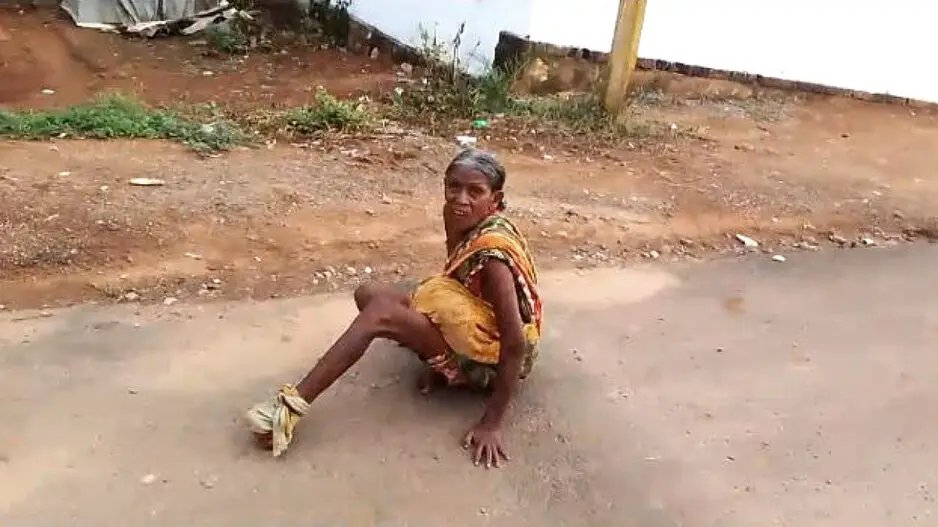/odishatv/media/post_attachments/uploadimage/library/16_9/16_9_0/recent_photo_1748790824.webp)
Devotees fall victim to 'Khaja' fraud in Puri
In a shocking revelation from Puri, one of Odisha’s holiest cities, an organized racket involving the sale of adulterated and underweight ‘Khaja’—a traditional sweet often falsely sold terming it as Mahaprasad—has come to light.
The deceptive trade has triggered widespread outrage among devotees, especially after a group of pilgrims from Berhampur reported being cheated while buying 'Khaja' near the Jagannath Temple.
What was supposed to be a spiritual journey turned sour when they discovered they had been sold 12 kg of Khaja instead of the 20 kg they paid for. Their suspicions were confirmed after weighing the sweets at a nearby shop. Not only were they shortchanged by 8 kg, but the shopkeeper reportedly hurled abuses and attempted to intimidate them with the help of local miscreants.
"The 'Khaja' vendors abused us and tried to assault us with the help of some local goons when we complained about their fraud," said a devotee.
Fake Mahaprasad, Inflated Prices & Weight Fraud
Outside the temple, vendors—some even falsely claiming to sell Mahaprasad—have been reportedly found charging exorbitant prices, ranging from Rs 200 to Rs 500 per kilogram. These vendors allegedly exploit the religious sentiments of visitors by falsely branding substandard and possibly unhygienic 'Khaja' as sacred. Whether from roadside stalls or pushcarts, this deceptive business continues unchecked.
The ingredients, preparation methods, and freshness of these sweets remain questionable. Most notably, there is no regulation on the oil, sugar, or materials used, raising serious health and ethical concerns.
Must Read: Puri’s famous ‘Khaja’ faces quality challenges amid GI tag efforts
Apart from the devotees, some servitors of Srimandir have also expressed their concerns over the matter.
"Some vendors are selling 'Khaja' by terming it as Mahaprasad, which is not acceptable, and they should be punished for it. The preparation process of those 'Khaja' is also not good. There should be a curb on it. By giving GI tag to Puri 'Khaja', its quality could be maintained," said Madhaba Mohapatra, former member of the Srimandir Management Committee.
"The administration should make the devotees aware that 'Khaja' sold outside the temple is not Mahaprasad. 'Khaja' is a popular cuisine of Puri. It should be prepared properly and its price should be regulated," said Krushna Chandra Khuntia, a servitor.
Devotees Demand Accountability, Authorities Respond
The matter escalated after the devotees lodged a formal complaint at the Singhadwar Police Station. Subsequently, one accused, identified as Santosh Panda, was arrested and forwarded to court. Meanwhile, the Puri SP confirmed the registration of the complaint and the ongoing investigation.
"Based on the complaint at the Singhadwar Police Station, a person has been arrested. We urge all the vendors not to refrain from cheating the devotees in Puri," said Puri SP Vinit Agarwal.
Responding to the allegations, the Sub-Collector of Puri announced a joint task force, including the Food Safety and Weights & Measures Departments, to crack down on these fraudulent traders. Special raids are expected to take place soon to ensure pilgrims are not defrauded during their spiritual visits to the holy city.
"The Additional District Magistrate has ordered the Food Safety and Weights & Measures Departments to form a team and crack down on these fraudulent traders at least twice in a week," said Puri Sub-Collector Raj Kishor Jena.
Rath Yatra Looms: Can Devotees Trust the Streets of Puri?
With the world-famous Rath Yatra just around the corner, lakhs of devotees are expected to visit Puri. The pressing question now is- how effectively can the administration protect them from being exploited? The 'Khaja' fraud is a wake-up call, not just for authorities, but for all stakeholders in maintaining the sanctity and trust of Shrikhetra.
'Disturbing dreams and guilt': IPS Arun Bothra’s post on ‘Nayagarh Pari rape and murder case’ sparks debate

Elderly woman crawls long distance to collect pension in Odisha

Explosive-laden trucks seized under suspicious circumstances in Odisha's Rourkela

OMFED dairy farmers to get Rs 3 extra per litre: Odisha CM on World Milk Day

/odishatv/media/agency_attachments/2025/07/18/2025-07-18t114635091z-640x480-otv-eng-sukant-rout-1-2025-07-18-17-16-35.png)

/odishatv/media/media_files/2025/09/22/advertise-with-us-2025-09-22-12-54-26.jpeg)
